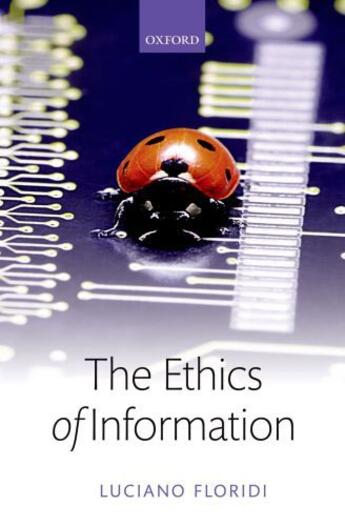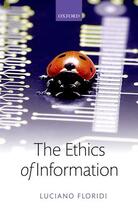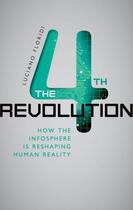Résumé:
Luciano Floridi develops an original ethical framework for dealing with the new challenges posed by Information and Communication Technologies (ICTs). ICTs have profoundly changed many aspects of life, including the nature of entertainment, work, communication, education, health care, industrial... Voir plus
Luciano Floridi develops an original ethical framework for dealing with the new challenges posed by Information and Communication Technologies (ICTs). ICTs have profoundly changed many aspects of life, including the nature of entertainment, work, communication, education, health care, industrial production and business, social relations, and conflicts. They have had a radical and widespread impact on our moral lives and on contemporary ethical debates. Privacy, ownership, freedom of speech, responsibility, technological determinism, the digital divide, and pornography online are only some of the pressing issues that characterise the ethical discourse in the information society. They are the subject of Information Ethics (IE), the new philosophical area of research that investigates the ethical impact of ICTs on human life and society.
Since the seventies, IE has been a standard topic in many curricula. In recent years, there has been a flourishing of new university courses, international conferences, workshops, professional organizations, specialized periodicals and research centres. However, investigations have so far been largely influenced by professional and technical approaches, addressing mainly legal, social, cultural and technological problems. This book is the first philosophical monograph entirely and exclusively dedicated to it.
Floridi lays down, for the first time, the conceptual foundations for IE. He does so systematically, by pursuing three goals:
A) a metatheoretical goal: it describes what IE is, its problems, approaches and methods;
B) an introductory goal: it helps the reader to gain a better grasp of the complex and multifarious nature of the various concepts and phenomena related to computer ethics;
C) an analytic goal: it answers several key theoretical questions of great philosophical interest, arising from the investigation of the ethical implications of ICTs.
Although entirely independent of The Philosophy of Information (OUP, 2011), Floridi's previous book, The Ethics of Information complements it as new work on the foundations of the philosophy of information.
















